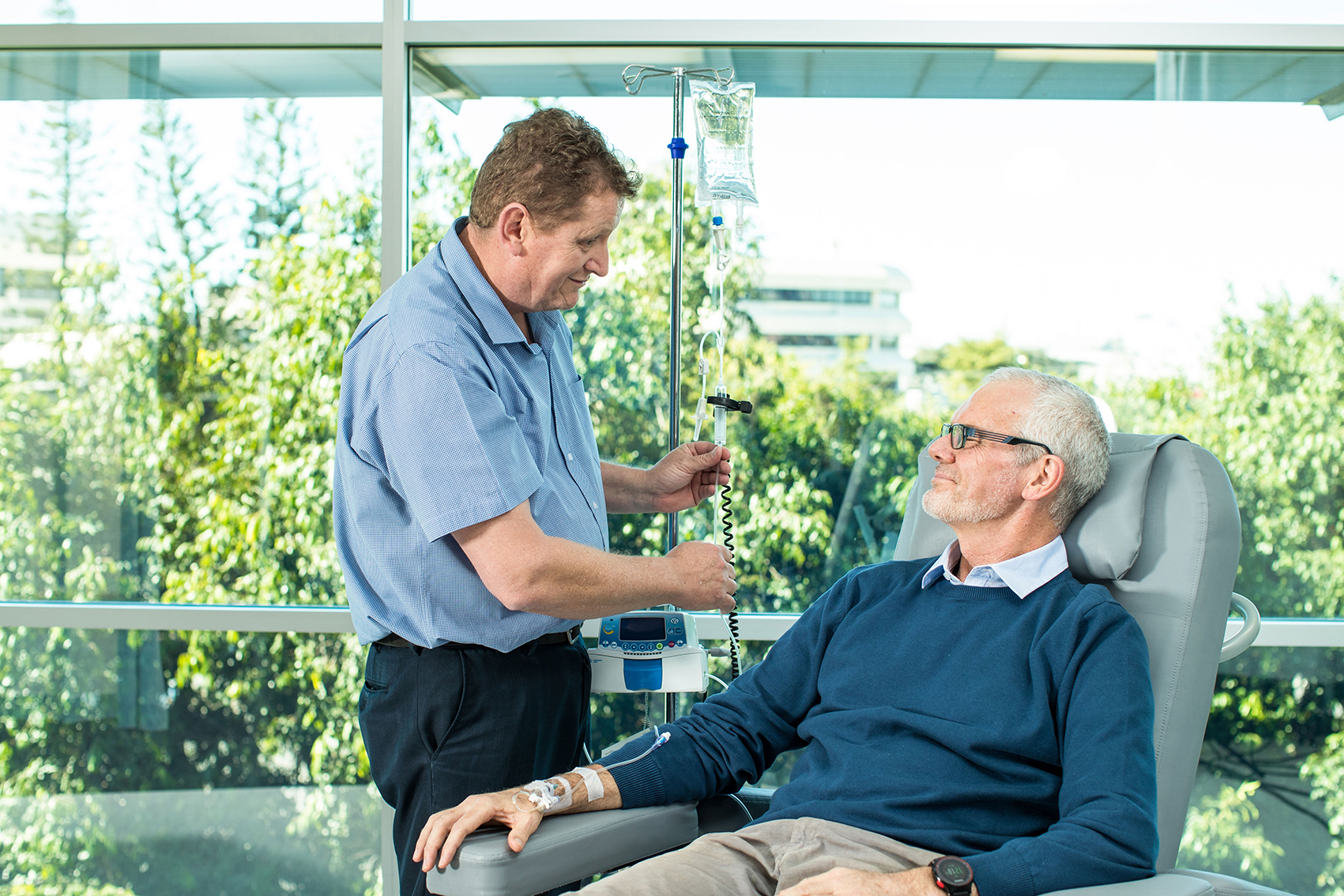Before starting chemotherapy, we understand that you may be feeling overwhelmed and anxious. Knowing what to expect can help you prepare for treatment and ease any stress you may be experiencing.
At Bowen Icon Cancer Centre, we believe in a personal approach to chemotherapy that matches your needs. This means that not every treatment will look the same. However, there are parts of the chemotherapy process that many people may experience.
Watch the video below to learn more about your first day of chemotherapy.
